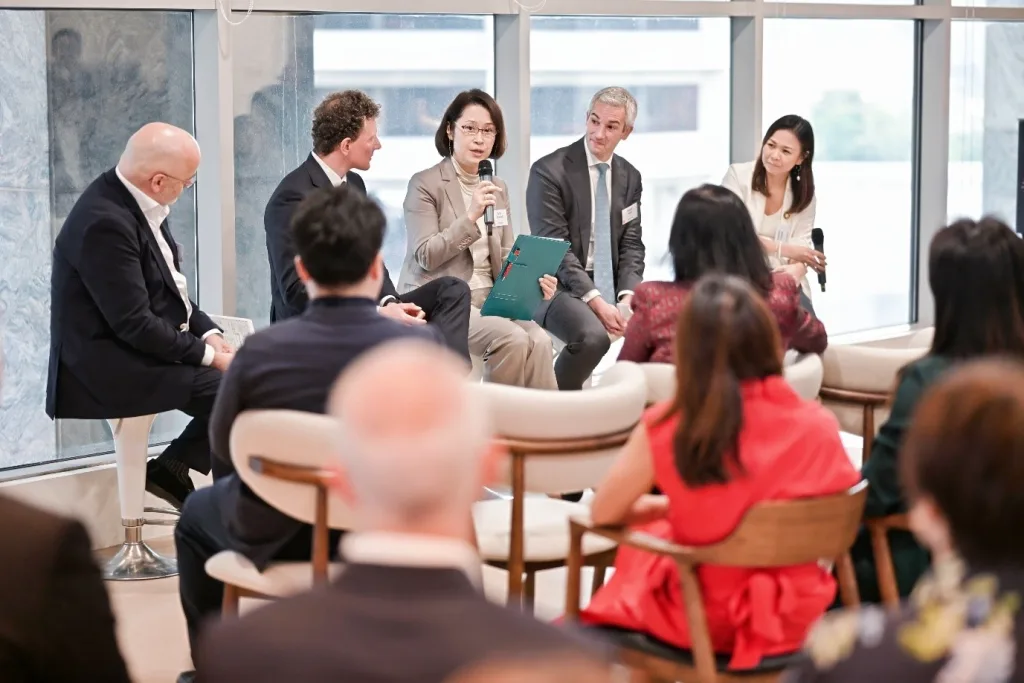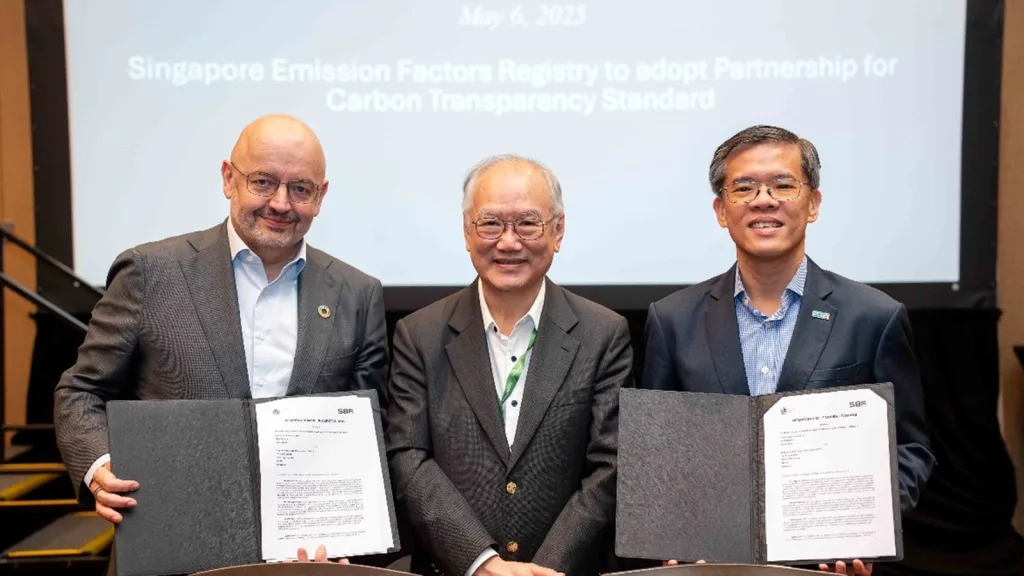This post was originally published on WBCSD
Ecosperity is an amazing event, which is really beginning to grow globally as the leading sustainability event, in this part of the world.
– Peter Bakker, 6th May 2025 (Channel News Asia Interview)
Asia’s Race towards 2030: All Systems Go was the theme at Ecosperity Week 2025 in Singapore. The four-day event brought together government representatives, financiers, and industry for a stocktake on where Asia stands in terms of meeting its 2030 decarbonization goals and to identify strategic areas of systems-level change the region requires.
WBCSD had a clear agenda: to align finance and high-quality data to build resilience and accelerate decarbonization in a nature-positive way. We convened our member community alongside policymakers and financial institutions focusing on action, implementation and business value.

On 5 May at the inaugural Carbon Removal Leaders’ Summit, convened by WBCSD alongside partners Climeworks, Climate Impact X, Tsao Pao Chee and South Pole, companies explored what it will take to scale up removals in support of climate action.
There was a strong consensus in the room: The Intergovernmental Panel on Climate Change makes it clear that there is no net-zero world without carbon removals. That means we need a functioning carbon market to reduce emissions and encourage innovation with scalable market-driven climate solutions. We need both reductions and removals. We need both technological and nature-based solutions, each plays a different role and both are essential.
Singapore becomes world’s first PACT-aligned emission factors registry
On 6 May, WBCSD and the Singapore Business Federation (SBF) launched a new partnership that makes Singapore the world’s first emission factors registry (Singapore Emissions Factors Registry: SEFR) to adopt PACT Methodology Version 3 (V3). This milestone empowers tens of thousands of Singapore businesses to calculate accurate, granular and comparable Product Carbon Footprints (PCFs), dramatically boosting transparency and standardization in the way emissions data is reported and exchanged across organizations.
By aligning SEFR with PACT v3, we’ve set a new global benchmark, unlocking reliable carbon data to meet growing regulatory demands, drive green procurement, unlock sustainable investments, and accelerate Scope 3 decarbonization strategies.

Following the announcement, we hosted a workshop with KPMG and SBF focused on addressing Scope 3 emissions through supplier engagement, a critical lever for staying competitive and resilient in today’s market. There was strong demand for SME involvement and tailored decarbonization support, with broad participation from financial institutions, tech players, auditors, and third-party verifiers, all focused on turning decarbonization into a business opportunity.
Leveraging the Corporate Performance & Accountability System (CPAS)
We took part in events with GFANZ (Glasgow Financial Alliance for Net Zero) and the Industrial Transition Platform Network (ITPN), ran a workshop on transition planning and integrated approaches to mitigation and adaptation, and a CPAS Roundtable on physical risk along value chains with finance executives from the real economy, investment leaders from asset managers, owners and banks and the Monetary Authority of Singapore.
We found innovative and sophisticated examples of integration of finance and sustainability, such as an environmental Weighted Average Cost of Capital (WACC) and Value at Risk (VaR). We found pragmatism – with sustainability action needing to be tied to economic growth and business performance. And we found collaboration – clear signals from policymakers, financial institutions, and corporations to both learn from and contribute to global best practice.
Climate-proofing businesses and communities
We ran workshops with members focused on managing climate-related risks and integrating transformative innovation and resilience into performance management. These highlighted the use of AI data-driven modeling platforms to build resilience and cut emissions, and integrated frameworks that marry decarbonization targets with climate resilience, underpinned by clear milestones and stronger public-private collaboration.
Nature-positive finance with the Singapore Sustainable Finance Association
Businesses shared real-world examples, from TNFD-aligned sustainability-linked loans to large-scale conservation efforts and circular economy investments. Financial institutions showed strong interest, provided that credible data and clear outcomes were in place.
Inclusive energy transition with ERM
Our members came together on actions to enable a just energy transition through people-centric transition planning that includes workforce skilling and community resilience. Five priorities emerged: reskilling, green job creation, just-transition programs, inclusive participation, and policy coordination.
Overall more than 250 people engaged in our sessions throughout the week, from over 100 ambitious companies.
Looking ahead
Ecosperity Week in Singapore underscored the powerful potential of collaboration, showing how finance, government, and business can come together to drive real-world decarbonization, build resilience, and deliver nature-positive outcomes at scale.
The post WBCSD at Ecosperity Week 2025: Asia’s Race to 2030 first appeared on WBCSD.




0 Comments